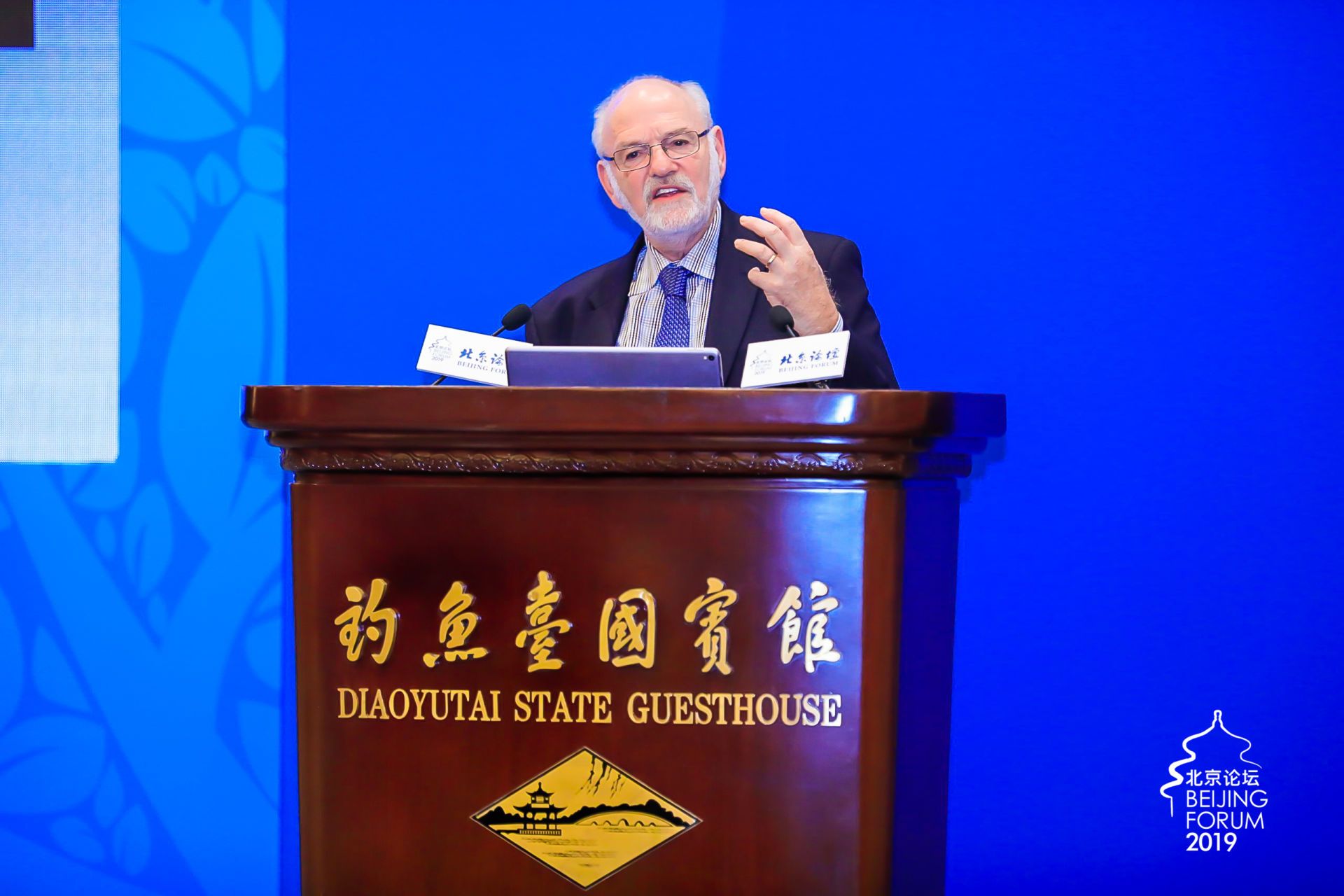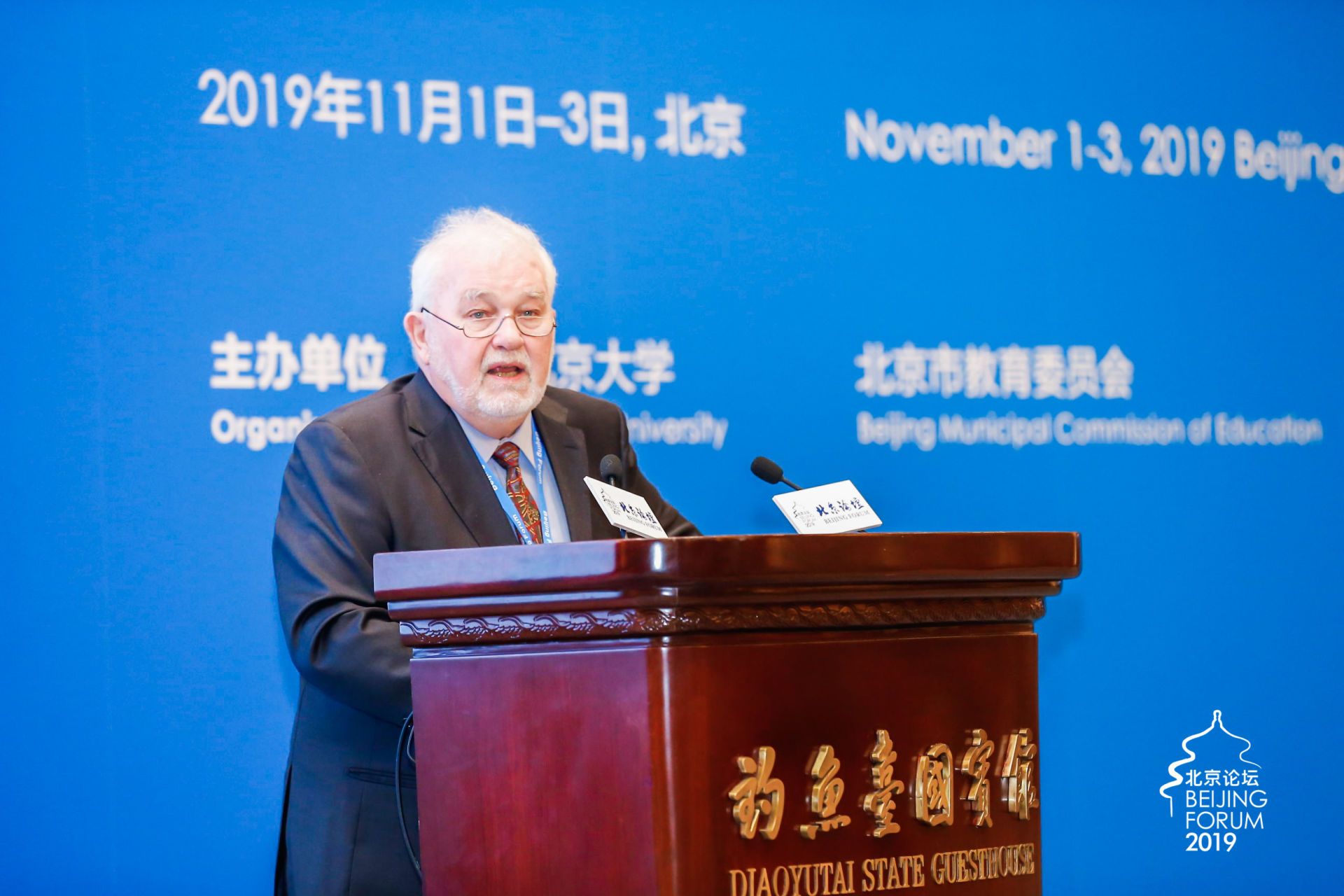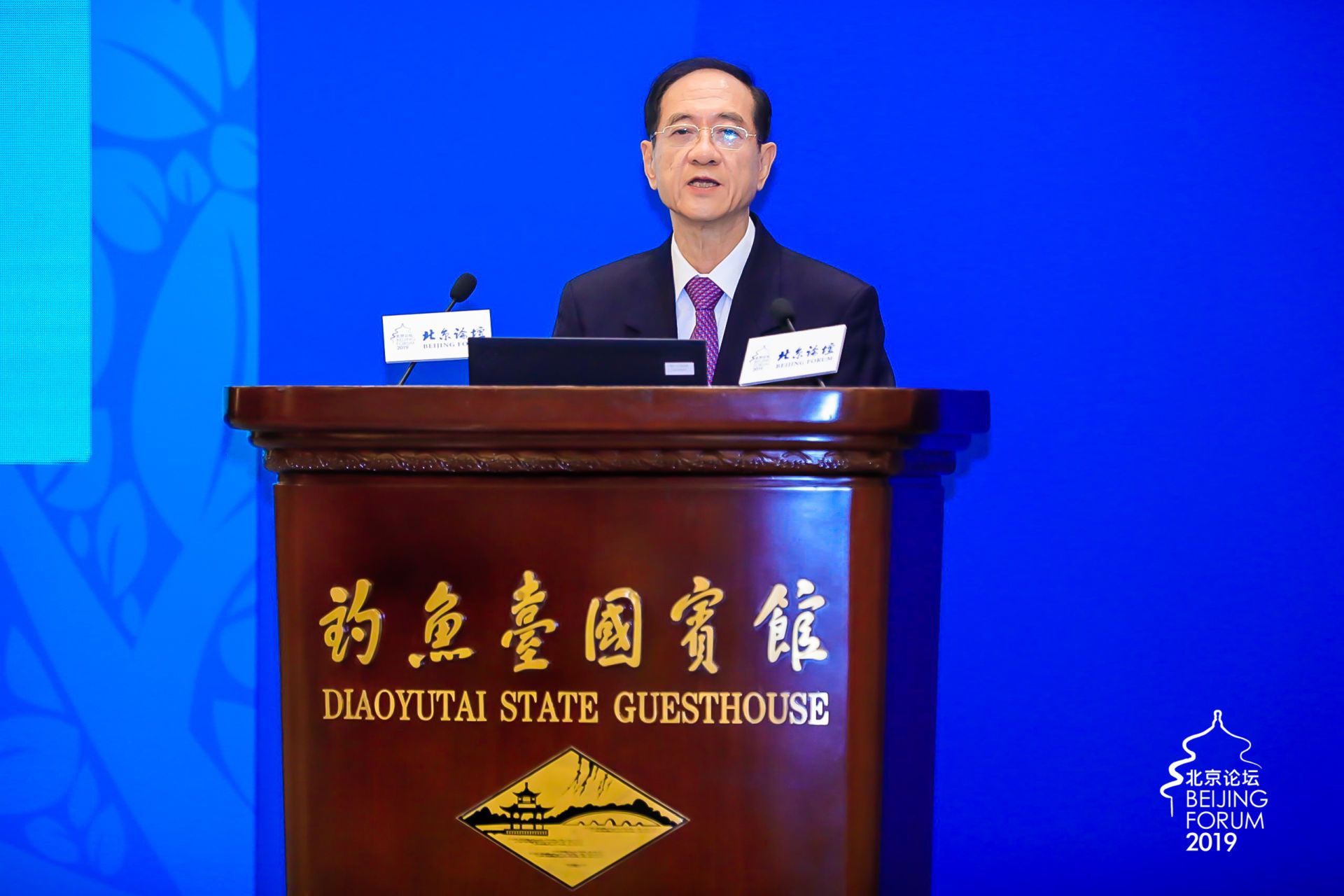[Beijing Forum 2019] Educating the future: ethics, history and science
Nov 04, 2019
Peking University, Nov. 4, 2019: The annual Beijing Forum, an international academic event, has been co-hosted by Peking University, The Beijing Municipal Commission of Education, and Korea Foundation for Advanced Studies since 2004. For the past 15 years, over 6,000 academic scholars and experts have gathered to share their advocacy for the on-going theme of “The Harmony of Civilizations and Prosperity for All”. Each year there is a subsequent theme that is connected to the general concept of harmony and prosperity, and this year it has been introduced as “The Changing World and the Future of Humankind”. Following the opening ceremony at Diaoyutai State Guesthouse on November 1, three academics from different academic disciplines addressed the audience with their keynote speeches.
The first keynote speaker was Wendell Wallach, chair of Technology and Ethics Studies at Yale University. He provided the audience with a humanitarian perspective on the use of information and technology. His speech on “Ethics for the Information Age” discussed the potential risks of AI and machine learning, for instance a lack of privacy, accountability and transparency. In addition, he advocated a strong need for ethical considerations and appropriate governance for technological development. Particularly in an age of unprecedented digitization, many may argue that ethical principles can be considered as a constraint to achieving a goal. However, ethics may be the only resource to help navigate this path of uncertainty and help manage potential conflicts. Wallach concluded his speech with the announcement of the International Congress for the Governance of AI in Prague, Czech Republic, which will take place from April 16 to 18, 2020. The purpose of this conference is to educate stakeholders in the field of AI and machine learning by encouraging cooperation between developers to maintain a sustainable and peaceful world.
 Wendell Wallach
Wendell Wallach
The second keynote speaker was Jürgen Kocka, an emeritus professor of History at Free University of Berlin. He emphasized the significance of studying history and how it can serve as a navigational tool to help map the present and future. Three key points supported his argument. First, history can be used to compare past with the present and provide clarity for a potential future. He elaborated on this point by making a comparison to the Comprehensive Mirror, a pioneering reference work in Chinese historiography. Second, studying the role of history means to study the role of conflict, and conflict is omnipresent. Many may argue that conflict should be perceived negatively. However, it should be perceived as a paradigm for the future and a healthy element for innovation. Furthermore, Professor Kocka said, “There should be mechanisms to suppress potential violent conflicts, but peace and prosperity cannot be reached without it.” Lastly, history can be a source of unification and collective identity that provides a narrative for individuals in a society. Narratives can be in different forms such as myths, and can be used to prompt cooperation and to help build communities.
 Jürgen Kocka
Jürgen Kocka
The third keynote speaker was Han Qide, honorary president of the China Association for Science and Technology. His speech focused on “Science, Civilization and the Future of Humanity”. Han emphasized that science and technology are integrated together, and are a driving and revolutionary force behind the progress of civilizations. In addition, he argued that the neutrality of science is fading due to the creation of big data, which has raised ethical questions for the future of advanced technologies. “Traditionally, science is a neutral academic discipline that exists due to individual or collective curiosity, and to provide humans with a richer quality of life. However, there is a growing external power of science, which is founded on national interests and competition,” Han said. This has potentially led to issues such as the widening of wealth inequalities, the spawning of terrorism and religious extremists. This raises the question of whether humans can control scientific and technological development. In China, currently, many may argue that it is becoming a global leader in innovation. However, China does not have a tradition of science and technology; instead it has been adopted from the West. Therefore, in conclusion, China should have an open mind, be confident and continue to learn and absorb the achievements from other developed cultures.
 Han Qide
Han Qide
The three keynote speeches have shed light on a significant topic, rethinking the role of globalization. Although globalization has raised the global economy through productivity, reduced poverty and created a platform for different cultures to share their knowledge with each other, it has also created new challenges. Civilizations no longer live in an age where the decisions and consequences of one do not affect another. In fact, humans live in a pluralistic world, a world that is interconnected and intercultural. With industry 4.0 on our doorsteps, it is the responsibility of the current generation to act with awareness and sensitivity to ensure the future generation does not suffer the consequences. The future of humankind is in our hands.
Reported by: Kairun Daikoku, Shi Jingjing, Yu Cong
Edited by: Huang Weijian


